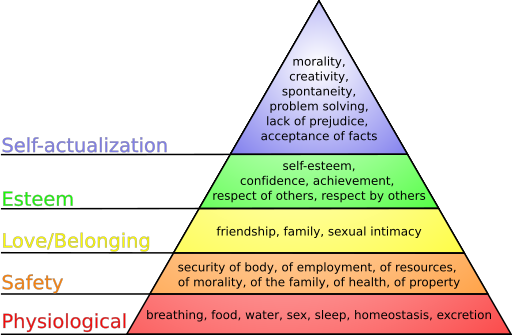What People Care About
There is a maxim of evangelization that I have often heard and used over the years that goes, "People don't care how much you know until they know how much you care." The saying is helpful as far as it goes, as it points would-be evangelizers to the necessity of building a relationship of trust with others through kindness and love before bombarding them with information. But there's still a bit of a false premise hidden in the statement - the idea that information is still the ultimate goal of evangelization. Love and kindness then become a sort of necessary legwork needed to get to the "real" task of evangelization, which is giving people information.
My perspective on evangelization has been shifting quite a bit lately, and based on this shift, my revised version of this maxim would have to be...
"People don't care how much you know."
They really don't. And evangelization isn't about getting people to agree with some collection of information. So what do people care about?
People care about finding a solution to the problems they are aware of.
So when it comes down to it, if you can't provide a solution the problem they are aware of, then you are irrelevant to them. And note that this is the problem that they are aware of. Sometimes we try to provide a solution to a problem that someone doesn't know they have. As right as your diagnosis and solution may be, they are not capable of receiving it.
Abraham Maslow brought to light this reality in the world of psychology with his "Hierarchy of Needs." The needs and desires of every person, he argued, can be grouped into five basic categories - physiological needs, the need for safety, love or belonging, esteem, and finally self-actualization. But there is a dependency between these needs, a particular order they must be met. If someone's basic physiological need for food, for instance, is not being met, they will have little concern for "higher" pursuits like esteem and self-actualization while their stomach growls and grumbles for nourishment. It is the need for food that consumes their awareness.

In a similar way, our efforts to evangelize - to address the core problem of separation from God in the human heart - will fall flat if it does nothing to address the problems people are actually aware of and concerned about, even if they are "lesser" needs in an objective sense.
JESUS, THE SOLUTION-BRINGER
If we look at the Gospels, we see that Jesus was a solution-bringer. He healed sick people. He restored broken bodies. He delivered people from demonic torment. And when the crowd was hungry, he multiplied the loaves and fish and fed them.
Never once do we see Jesus offering an explanation for someone's suffering. Once they tried to coax an explanation out of him (John 9:2) but he skirted the question completely and gave a blind man his sight instead. Jesus' way was not to offer explanations, but solutions. And when he provided solutions to the immediate need, it opened up the opportunity for Jesus to also meet their deepest need, the need to be reconciled with God.
And his disciples followed suit. I think of Peter and John seeing the crippled man begging at the door of the temple. The man hoped to receive money from them, but what he got was a solution to a problem he never expected to overcome when Peter said to him, “I have neither silver nor gold, but what I do have I give you: in the name of Jesus Christ the Nazorean, rise and walk.” (Acts 3:6)
AN EXCITING MOVEMENT
There is an incredible, exciting movement within the body of Christ-followers going on today. Whole swaths of Christians are seeking to evangelize the way Jesus and his disciples after him did by becoming solution-bringers in His name. Sometimes needs are met in natural ways accompanied by a supernatural love, and sometimes these needs are being met in supernatural ways via healing and deliverance.
What is empowering them to reach out to people in this bold way is that they have come to the conviction that Jesus is a solution-bringer today just as he was in the first century. And this boldness of faith is resulting in healings and miracles on a daily basis, and it is touching hearts that have been cold and resistant to a version of Christianity that has for too long made it about mere information rather than allowing Jesus to be the solution-bringer he desires to be in our world!

